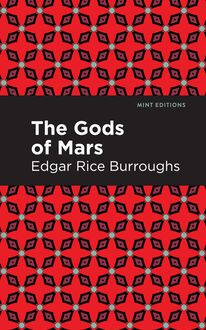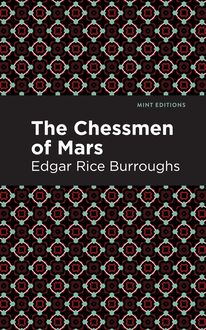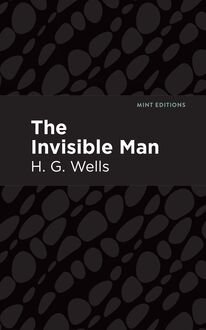-
 Univers
Univers
-
 Ebooks
Ebooks
-
 Livres audio
Livres audio
-
 Presse
Presse
-
 Podcasts
Podcasts
-
 BD
BD
-
 Documents
Documents
-
- Cours
- Révisions
- Ressources pédagogiques
- Sciences de l’éducation
- Manuels scolaires
- Langues
- Travaux de classe
- Annales de BEP
- Etudes supérieures
- Maternelle et primaire
- Fiches de lecture
- Orientation scolaire
- Méthodologie
- Corrigés de devoir
- Annales d’examens et concours
- Annales du bac
- Annales du brevet
- Rapports de stage
La lecture à portée de main
Vous pourrez modifier la taille du texte de cet ouvrage
Découvre YouScribe en t'inscrivant gratuitement
Je m'inscrisDécouvre YouScribe en t'inscrivant gratuitement
Je m'inscrisEn savoir plus
Vous pourrez modifier la taille du texte de cet ouvrage
En savoir plus

Description
From the author of countless esteemed classics such as The Adventures of Huckleberry Finn, , Mark Twain’s A Connecticut Yankee in King Arthur’s Court follows an American engineer named Hank Morgan. When Hank suffers from a severe head injury, he falls unconscious, only to wake up in the medieval Camelot years. Learning that he has somehow traveled through space and time to be present in 6th century England during the time of King Arthur’s rule, Hank is shocked and worried when he is discovered by guards. However, after the initial confusion and concern, Hank understands the potential of his situation, and decides to use his future knowledge for the good of the people now around him. Of course, the subjects of King Arthur’s kingdom were skeptical of him, and consequently, soon after Hank arrived his execution was scheduled. However, because of Hank’s knowledge, he is able to trick the people, including the king himself, into thinking that he has special powers. After using a solar eclipse to “prove” his ability, Hank is elected into a position of power, using his new authority to modernize and Americanize the medieval people. Accepting the kingdom as his new home, Hank build relationships and feels that he is making an immense difference in the lives of King Arthur and his subjects. But when the Catholic church grows uneasy about Hank’s new influence and ideas, Hank finds himself in even more danger than he was in when he was scheduled for death row. A Connecticut Yankee in King Arthur’s Court by Mark Twain is a classic comedy that features reflective and fascinating topics of social justice and science. Though originally published in 1889, A Connecticut Yankee in King Arthur’s Court addresses social and political issues that are still relevant today and even predicted the first world war. With an anecdotal narrative, Twain delivers a compelling plot with humorous prose and discussion of serious societal concerns. This edition of Mark Twain’s A Connecticut Yankee in King Arthur’s Court features a striking new cover design and is printed in a modern font to accommodate to the desires of a contemporary audience.
Sujets
Informations
| Publié par | Mint Editions |
| Date de parution | 21 mai 2021 |
| Nombre de lectures | 0 |
| EAN13 | 9781513276151 |
| Langue | English |
| Poids de l'ouvrage | 1 Mo |
Informations légales : prix de location à la page 0,0500€. Cette information est donnée uniquement à titre indicatif conformément à la législation en vigueur.
Extrait
A Connecticut Yankee in King Arthur’s Court
Mark Twain
A Connecticut Yankee in King Arthur’s Court was first published in 1889.
This edition published by Mint Editions 2020.
ISBN 9781513271156 | E-ISBN 9781513276151
Published by Mint Editions®
minteditionbooks .com
Publishing Director: Jennifer Newens
Design & Production: Rachel Lopez Metzger
Project Manager: Micaela Clark
Typesetting: Westchester Publishing Services
C ONTENTS P REFACE A W ORD OF E XPLANATION T HE S TRANGER ’ S H ISTORY I. C AMELOT II. K ING A RTHUR ’ S C OURT III. K NIGHTS OF THE T ABLE R OUND IV. S IR D INADAN THE H UMORIST V. A N I NSPIRATION VI. T HE E CLIPSE VII. M ERLIN ’ S T OWER VIII. T HE B OSS IX. T HE T OURNAMENT X. B EGINNINGS OF C IVILIZATION XI. T HE Y ANKEE IN S EARCH OF A DVENTURES XII. S LOW T ORTURE XIII. F REEMEN XIV. “D EFEND T HEE , L ORD ” XV. S ANDY ’ S T ALE XVI. M ORGAN LE F AY XVII. A R OYAL B ANQUET XVIII. I N T HE Q UEEN ’ S D UNGEONS XIX. K NIGHT -E RRANTRY AS A T RADE XX. T HE O GRE ’ S C ASTLE XXI. T HE P ILGRIMS XXII. T HE H OLY F OUNTAIN XXIII. R ESTORATION OF THE F OUNTAIN XXIV. A R IVAL M AGICIAN XXV. A C OMPETITIVE E XAMINATION XXVI. T HE F IRST N EWSPAPER XXVII. T HE Y ANKEE AND THE K ING T RAVEL I NCOGNITO XXVIII. D RILLING THE K ING XXIX. T HE S MALLPOX H UT XXX. T HE T RAGEDY OF THE M ANOR -H OUSE XXXI. M ARCO XXXII. D OWLEY ’ S H UMILIATION XXXIII. S IXTH C ENTURY P OLITICAL E CONOMY XXXIV. T HE Y ANKEE AND THE K ING S OLD AS S LAVES XXXV. A P ITIFUL I NCIDENT XXXVI. A N E NCOUNTER IN THE D ARK XXXVII. A N A WFUL P REDICAMENT XXXVIII. S IR L AUNCELOT AND K NIGHTS TO THE R ESCUE XXXIX. T HE Y ANKEE ’ S F IGHT WITH THE K NIGHTS XL. T HREE Y EARS L ATER XLI. T HE I NTERDICT XLII. W AR ! XLIII. T HE B ATTLE OF THE S AND B ELT XLIV. A P OSTSCRIPT BY C LARENCE T HE E ND OF THE M ANUSCRIPT
P REFACE
The ungentle laws and customs touched upon in this tale are historical, and the episodes which are used to illustrate them are also historical. It is not pretended that these laws and customs existed in England in the sixth century; no, it is only pretended that inasmuch as they existed in the English and other civilizations of far later times, it is safe to consider that it is no libel upon the sixth century to suppose them to have been in practice in that day also. One is quite justified in inferring that whatever one of these laws or customs was lacking in that remote time, its place was competently filled by a worse one.
The question as to whether there is such a thing as divine right of kings is not settled in this book. It was found too difficult. That the executive head of a nation should be a person of lofty character and extraordinary ability, was manifest and indisputable; that none but the Deity could select that head unerringly, was also manifest and indisputable; that the Deity ought to make that selection, then, was likewise manifest and indisputable; consequently, that He does make it, as claimed, was an unavoidable deduction. I mean, until the author of this book encountered the Pompadour, and Lady Castlemaine, and some other executive heads of that kind; these were found so difficult to work into the scheme, that it was judged better to take the other tack in this book (which must be issued this fall), and then go into training and settle the question in another book. It is, of course, a thing which ought to be settled, and I am not going to have anything particular to do next winter anyway.
M ARK T WAIN
H ARTFORD , July 21, 1889
A W ORD OF E XPLANATION
It was in Warwick Castle that I came across the curious stranger whom I am going to talk about. He attracted me by three things: his candid simplicity, his marvelous familiarity with ancient armor, and the restfulness of his company—for he did all the talking. We fell together, as modest people will, in the tail of the herd that was being shown through, and he at once began to say things which interested me. As he talked along, softly, pleasantly, flowingly, he seemed to drift away imperceptibly out of this world and time, and into some remote era and old forgotten country; and so he gradually wove such a spell about me that I seemed to move among the specters and shadows and dust and mold of a gray antiquity, holding speech with a relic of it! Exactly as I would speak of my nearest personal friends or enemies, or my most familiar neighbors, he spoke of Sir Bedivere, Sir Bors de Ganis, Sir Launcelot of the Lake, Sir Galahad, and all the other great names of the Table Round—and how old, old, unspeakably old and faded and dry and musty and ancient he came to look as he went on! Presently he turned to me and said, just as one might speak of the weather, or any other common matter—
“You know about transmigration of souls; do you know about transposition of epochs—and bodies?”
I said I had not heard of it. He was so little interested—just as when people speak of the weather—that he did not notice whether I made him any answer or not. There was half a moment of silence, immediately interrupted by the droning voice of the salaried cicerone:
“Ancient hauberk, date of the sixth century, time of King Arthur and the Round Table; said to have belonged to the knight Sir Sagramor le Desirous; observe the round hole through the chain-mail in the left breast; can’t be accounted for; supposed to have been done with a bullet since invention of firearms—perhaps maliciously by Cromwell’s soldiers.”
My acquaintance smiled—not a modern smile, but one that must have gone out of general use many, many centuries ago—and muttered apparently to himself:
“Wit ye well, I saw it done .” Then, after a pause, added: “I did it myself.”
By the time I had recovered from the electric surprise of this remark, he was gone.
All that evening I sat by my fire at the Warwick Arms, steeped in a dream of the olden time, while the rain beat upon the windows, and the wind roared about the eaves and corners. From time to time I dipped into old Sir Thomas Malory’s enchanting book, and fed at its rich feast of prodigies and adventures, breathed in the fragrance of its obsolete names, and dreamed again. Midnight being come at length, I read another tale, for a nightcap—this which here follows, to wit:
H OW S IR L AUNCELOT S LEW T WO G IANTS, AND M ADE A C ASTLE F REE
Anon withal came there upon him two great giants, well armed, all save the heads, with two horrible clubs in their hands. Sir Launcelot put his shield afore him, and put the stroke away of the one giant, and with his sword he clave his head asunder. When his fellow saw that, he ran away as he were wood [*demented], for fear of the horrible strokes, and Sir Launcelot after him with all his might, and smote him on the shoulder, and clave him to the middle. Then Sir Launcelot went into the hall, and there came afore him three score ladies and damsels, and all kneeled unto him, and thanked God and him of their deliverance. For, sir, said they, the most part of us have been here this seven year their prisoners, and we have worked all manner of silk works for our meat, and we are all great gentle-women born, and blessed be the time, knight, that ever thou wert born; for thou hast done the most worship that ever did knight in the world, that will we bear record, and we all pray you to tell us your name, that we may tell our friends who delivered us out of prison. Fair damsels, he said, my name is Sir Launcelot du Lake. And so he departed from them and betaught them unto God. And then he mounted upon his horse, and rode into many strange and wild countries, and through many waters and valleys, and evil was he lodged. And at the last by fortune him happened against a night to come to a fair courtilage, and therein he found an old gentle-woman that lodged him with a good-will, and there he had good cheer for him and his horse. And when time was, his host brought him into a fair garret over the gate to his bed. There Sir Launcelot unarmed him, and set his harness by him, and went to bed, and anon he fell on sleep. So, soon after there came one on horseback, and knocked at the gate in great haste. And when Sir Launcelot heard this he rose up, and looked out at the window, and saw by the moonlight three knights come riding after that one man, and all three lashed on him at once with swords, and that one knight turned on them knightly again and defended him. Truly, said Sir Launcelot, yonder one knight shall I help, for it were shame for me to see three knights on one, and if he be slain I am partner of his death. And therewith he took his harness and went out at a window by a sheet down to the four knights, and then Sir Launcelot said on high, Turn you knights unto me, and leave your fighting with that knight. And then they all three left Sir Kay, and turned unto Sir Launcelot, and there began great battle, for they alight all three, and strake many strokes at Sir Launcelot, and assailed him on every side. Then Sir Kay dressed him for to have holpen Sir Launcelot. Nay, sir, said he, I will none of your help, therefore as ye will have my help let me alone with them. Sir Kay for the pleasure of the knight suffered him for to do his will, and so stood aside. And then anon within six strokes Sir Launcelot had stricken them to the earth.
And then they all three cried, Sir Knight, we yield us unto you as man of might matchless. As to that, said Sir Launcelot, I will not take your yielding unto me, but so that ye yield you unto Sir Kay the seneschal, on that covenant I will save your lives and else not. Fair knight, said they, that were we loath to do; for as for Sir Kay we chased him hither, and had overcome him had ye not been; therefore, to yield us unto him it were no reason. Well, as to that, said Sir Launcelot, advise you well, for ye may choose whether ye will die or live, for an ye be yielden, it shall be unto Sir Kay. Fair knight, then they said, in saving our lives we will do as thou commandest
-
 Univers
Univers
-
 Ebooks
Ebooks
-
 Livres audio
Livres audio
-
 Presse
Presse
-
 Podcasts
Podcasts
-
 BD
BD
-
 Documents
Documents
-
Jeunesse
-
Littérature
-
Ressources professionnelles
-
Santé et bien-être
-
Savoirs
-
Education
-
Loisirs et hobbies
-
Art, musique et cinéma
-
Actualité et débat de société
-
Jeunesse
-
Littérature
-
Ressources professionnelles
-
Santé et bien-être
-
Savoirs
-
Education
-
Art, musique et cinéma
-
Actualité et débat de société
-
Actualités
-
Lifestyle
-
Presse jeunesse
-
Presse professionnelle
-
Pratique
-
Presse sportive
-
Presse internationale
-
Culture & Médias
-
Action et Aventures
-
Science-fiction et Fantasy
-
Société
-
Jeunesse
-
Littérature
-
Ressources professionnelles
-
Santé et bien-être
-
Savoirs
-
Education
-
Loisirs et hobbies
-
Art, musique et cinéma
-
Actualité et débat de société
- Cours
- Révisions
- Ressources pédagogiques
- Sciences de l’éducation
- Manuels scolaires
- Langues
- Travaux de classe
- Annales de BEP
- Etudes supérieures
- Maternelle et primaire
- Fiches de lecture
- Orientation scolaire
- Méthodologie
- Corrigés de devoir
- Annales d’examens et concours
- Annales du bac
- Annales du brevet
- Rapports de stage



















